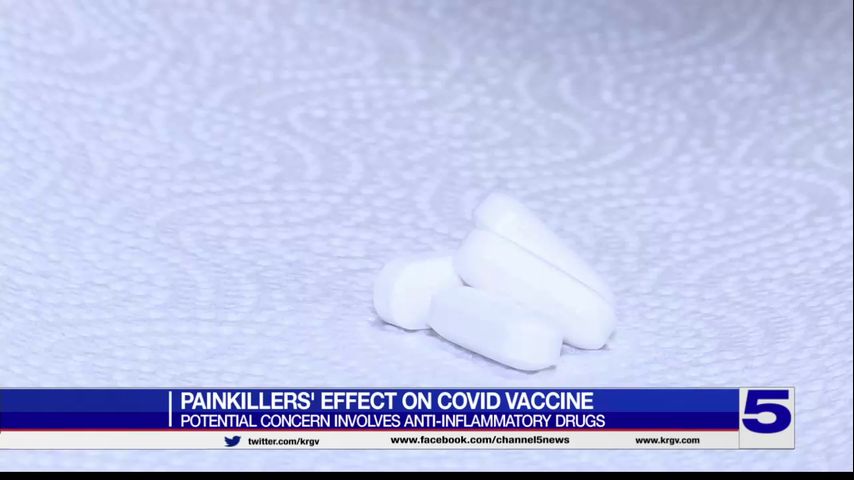There is not enough research to show that taking over-the-counter medications before or after receiving a COVID19 vaccine can lead to negative side effects, but a local medical professional says that if someone shows mild symptoms – it is better to hold on and continue, do not take any medication.
“When you get the vaccine, you want the inflammation to rise as high as possible because it causes a response,” said DHR Health’s medical director, Dr. Robert Martinez. “If you administer a drug to block that response, you may be changing your response.”
Martinez explains that anti-inflammatory drugs like aspirin or ibuprofen can make the vaccine less effective if taken before or after receiving a dose.
“Theoretically, it could happen,” said Martinez. “I don’t think we know enough now. A lot of these things are little pains that are going to go away, so maybe they shouldn’t be longer than a few hours or half a day or something. So, they’re saying that if you can take it, it’s probably better take it. “
Martinez says that so far, DHR has seen no cases of serious reactions to COVID-9 vaccines in its vaccination clinics or hospital patients.
The only known side effects are arm pain, headaches and chills. Martinez adds that if you received a COVID-19 vaccine and the pain is uncomfortable or unbearable, there are safer alternatives to over-the-counter medications.
“There are painkillers that are not anti-inflammatory, and this is Tylenol,” said Martine. “Tylenol is yet another antipyretic, completely different mechanism of action that reduces fever and is an analgesic, but it does not necessarily affect your immune system by anti-inflammatory routes. “
If the symptoms of the vaccine last for more than a day and a half, or if you have questions about how the vaccine reacts to certain medications, check with your primary care physician.
